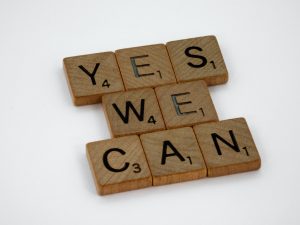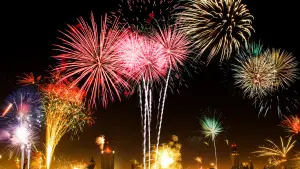As a girl raised in northern Nigeria, I grew up around diversity. I was so aware that we are very different and yet similar. Fortunately, it has informed a lot of my decisions in life. Including those around land, oil, and water.
However, I didn’t notice that this vital lesson was also evident in Nigeria’s land geography – in her natural resources.
There are major lessons one can learn from land, oil, and water. Each one is powerful in itself. Capable of sustaining life as much as it is capable of taking it. We can not choose one element and ignore the rest. Nigeria’s diversity and uniqueness are as much a blessing as they are a burden. They are ours to master.

From the Land
If we were to ever get a clue, the country’s diverse landforms let us in on a secret a long time ago. This distinctive collage of regions, which starts from the deserts up north to the plains and plateaus, swamps, and mountains. Dives deep into the steamy jungles and terminates at the coastal areas that lead into the great Atlantic.
This vast difference reveals that as real and as threatening as the challenges of desertification and its encroachment faced in the northwestern regions of the country are, they could as well be fictional to the victims of recurrent floods in the middle belt and Niger Delta region. And this is the country we live in, a land of divergent realities where the everyday life of citizen A is mostly lost on citizen K.
Recently, over 22 of the 36 States were affected by flooding, it was disheartening. I was listening in on a conversation between my driver from Jos to Abuja and a passenger seated in front. Our driver made some acerbic commentary that made me cringe as we listened to the radio host’s report. I remember how he said in Hausa “we know these floods are being exaggerated. If not, see how dry it has been these past 3 weeks. How can they say they are being flooded?”
His ignorance weighed heavily on my heart. I thought to myself, if he, who travels interstate regularly, meets people of different backgrounds, and has some level of exposure, thinks this way, how much more an almajiri boy or an alewa hawker who has never traveled out of their local government? What will inform their empathy for their countrymen living in other parts? Media? It’s doing a poor job, especially in these days of misinformation.
We have a communication and knowledge gap. The Savannah should not assume that the mangroves are lying when they say they’re always wet simply because it doesn’t have the experience of being constantly wet. But the Savannah must first know that the mangroves are quite different from it, though they all are classified as defining features of a land’s relief.
From the Water
Nigeria is blessed with two beautiful rivers that flow into her from the mountains of Guinea and the Adamawa Plateau in Cameroon, they sashay through the land, merging at that confluence where they are always together flowing, yet not the same. I remember the first time I saw the confluence as a teenager. It was riveting. From the top of mount Pate, two powerful bodies of water come to a meeting point and yet maintain their individuality. Decorated naturally by the ever-abundant water lilies. I was in awe.
I wonder if we would learn from these old rivers that we do not have to change our essential makeup – color, temperature, density, origin, or turbulence – to flow as one.
Perhaps all we need to change is our direction of flow. Fundamentally, they remain one thing – water, with one destination – the Atlantic. ”’
The rivers have a mind of their own, branching into multiple distributaries, not threatened in any way by how many smaller bodies emanate from either of them. Because the end is the goal -draining into the Atlantic
My people are a lot like this confluence in Lokoja. And perhaps we could learn that we don’t have to change our essence and make-up – our tongue and tribe, traditions, folklore, music, food – to flow as one.
Perhaps all we need to do is change our direction. And instead of crashing into one another violently and trying to dominate, we choose to remember that Fundamentally, we remain one thing – Human, with one destination – a better nation.
Each body may have a mind of its own and branch into smaller rivers but we do not need to tally who has how many, because as long as we are flowing towards one nation, where all are equal and free, our journeys are worth it.
And like the water, we must know that we’re nothing when out of control – except agents of destruction, death, and contamination.
From the Oil
Many times, our best resources are buried deep within us. Or so we are told. Perhaps this narrative came with the discovery of earth’s mineral resources and their value in improving the quality of life of humanity. It is a true but faulty outlook when imbibed with no regulations – It teaches us to slowly start despising the surface treasures we have. Those that have carried us through generations. Surface treasures like farmlands for instance.
Oil has been Nigeria’s most exploited resource for national productivity. Our significant discovery of the buried resource rerouted us as a nation.
These days, l find myself wishing more and more that we never found the oil. At least not at the time we did.
Hear me out. A lot of good has come from it, no doubt. But at what cost? My mother served in the Niger Delta and from stories she has shared, all I’ve seen, read, and heard, I am appalled by our nonchalance towards the grave loss our country has caused this fraction of our population.
I look back and imagine a country that found deeply buried resources but did not throw aside its invaluable surface treasures.
Why are we humans so eager to grasp the new shiny thing with no regard for how we drop the one in our hands?
I am incensed by the apathy, by our disregard for the long-term complications our corrupt practices have – oil spills, fires, Air pollution, and their devastating effects on our health. Ecosystem, flora and fauna, and their natural habitat. Where’s the ire, the lividity, the fear, and the correction?
People have been robbed of their ancestral way of life – their waters poisoned, fish dead, and farms rendered useless by the coating film of oil.
When writing my JSSCE, I had to do a practical typewriting session to pass business studies. I hated typewriting, though I liked Business studies. The short article we were all made to type was titled “Oil and Water do not mix.” I don’t know why I still remember this. But the way water and oil will not mix on any account has remained a point of intrigue for me. Those words have stayed with me all these years. If truly these elements do not mix, why are we hellbent on forcing a marriage? When oil settles on the water, it ruins it. When it settles on the land, it ruins it. When oil settles on anything, it either changes that thing to itself or forces it to lose itself or its initial state of matter.
There are many lessons we can learn in this Land of Oil and Water, but beyond the lesson is the test. Are we ready?
Our planet is beautiful, resilient, and always giving. It is time for us to give back by taking care of each other and her.






